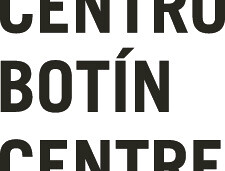September 4–15, 2017
Renowned Belgian-born German artist Carsten Höller will lead the Villa Iris Visual Arts Workshop due to take place in Santander between September 4 and 15. The event, which has been organised by Fundación Botín for the past 24 years, will be set against the backdrop of the newly inaugurated Botín Centre, where Höller’s solo exhibition Y will be on display until September 10.
15 artists from across the world will be selected by the artist to take part in the 12-day workshop which will revolve around an important recurring idea in Höller’s work: games.
Since 1994, the Villa Iris Visual Arts Workshop has been bringing young artists to Santander to work closely with outstanding creators such as Juan Uslé, Gabriel Orozco, Julião Sarmento, Miroslaw Balka, Antoni Muntadas, Jannis Kounellis, Mona Hatoum, Paul Graham, Tacita Dean, Carlos Garaicoa, Julie Mehretu and Joan Jonas.
The workshop will be given in English and the participants will be selected by Höller, who will choose between all the applications sent to Fundación Botín online by July 28 (consult the terms and conditions here). The chosen candidates will be announced after August 4.
Artists wishing to take part should reflect upon how they incorporate “games” into their own work, as well as the role of games and experiments in today’s society. The artists chosen to take part in the workshop will create a new series of games and experiments alongside Carsten Höller which may be played without the help of materials, documenting them afterwards and creating user instructions. The success of the workshop will depend on the participants’ creative thinking, in addition to other creative practical skills they may have.
The workshop, which will be co-lead by curator Stefanie Hessler, will also give the participants the chance to visit the artist’s exhibition at the Botín Centre and to witness it being dismantled after closing its doors on September 10, five days before the workshop ends.
About Carsten Höller
Höller is a renowned Belgian-born German artist who makes use of his scientific background in his artistic works, focusing on the nature of human relations. He was born in Brussels in 1961 and currently lives and works between Stockholm and Biriwa (Ghana).
Some of his most important installations include Test Site, a series of giant slides created for the Turbine Hall at Tate Modern (2006); Amusement Park, full-sized amusement park rides that move at extremely slow speeds at MASS MoCA, North Adams, USA (2006); Flying Machine (1996), a work that lifted spectators into the air; Upside-Down Goggles (2001), an experiment with goggles that alter one’s vision; and the famous The Double Club (2008–09), which opened in November 2008 in London and operated as a bar, restaurant, and party room until it closed in 2009, all with the aim of establishing a dialogue between Congolese and western culture. His Revolving Hotel Room (2008) is a rotating artistic installation which became a fully functioning hotel room at night. It was part of theanyspacewhatever exhibition held in 2009 at the Guggenheim Museum in New York. For the 2015 Decision exhibition at Hayward Gallery, he transformed the entire building into an experimental tour with two entrances and four exits, two of which were slides.
In the last two decades, Carsten Höller has undertaken numerous international exhibitions: Fondazione Prada, Milan (2000); ICA, Boston (2003); Musée d’Art Contemporain, Marseille (2004); Kunsthaus Bregenz, Austria (2008); Museum Boijmans Van Beuningen, Rotterdam (2010); Hamburger Bahnhof - Museum für Gegenwart, Berlin (2011); New Museum, New York (2011); Thyssen-Bornemisza Art Contemporary (TBA21), Vienna (2014); Pirelli HangarBicocca, Milan (2016); and most recently Henie Onstad Sanatorium in Henie Onstad Kunstsenter, Oslo.


